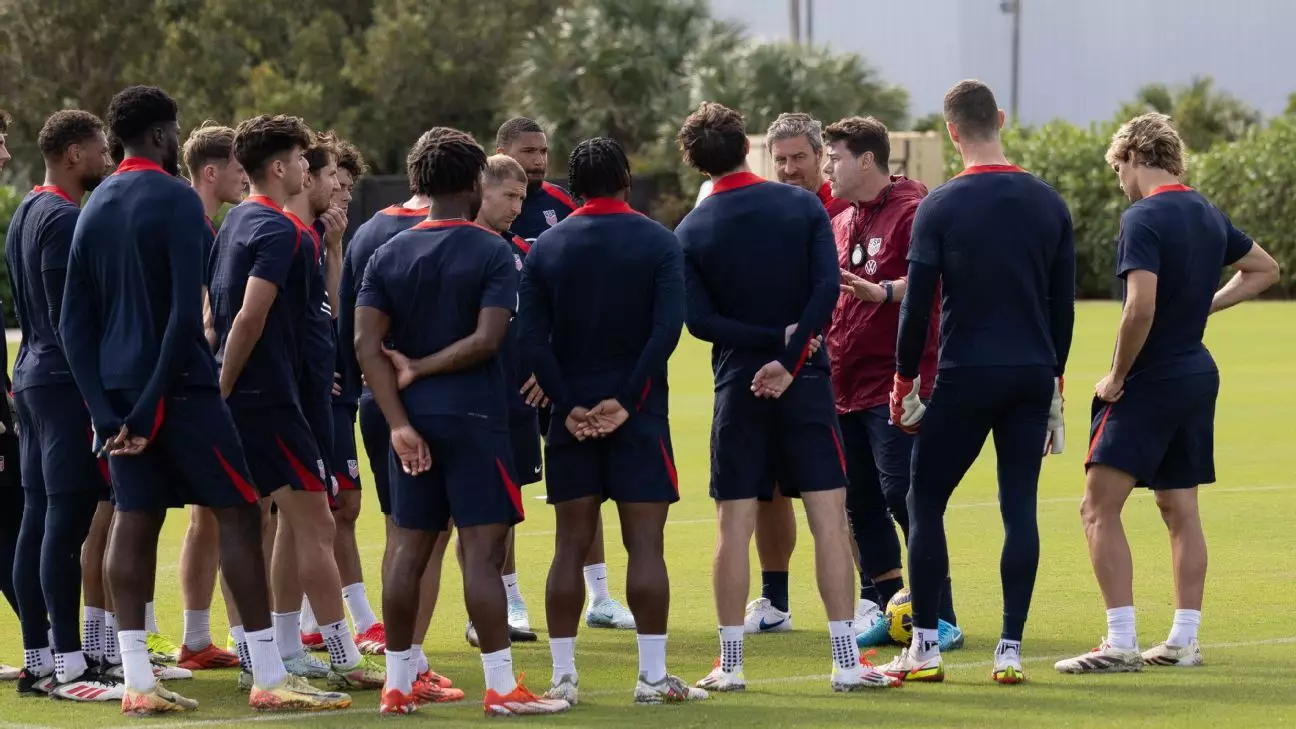United States Men’s National Team (USMNT) coach Mauricio Pochettino is reshaping perceptions about the January camp—a phase historically seen as a secondary gathering of players. The intent behind this period is not merely to cycle through alternatives but to offer a platform where promising talent can emerge and vie for a legitimate place within the broader spectrum of U.S. Soccer. This January, Pochettino meticulously selected 24 players, aiming to cultivate fresh prospects by providing them opportunities in international friendlies against Venezuela and Costa Rica.
Acknowledging the skepticism surrounding the term “alternative team,” Pochettino clarified, “I don’t like naming it an alternative team. For me, it’s the team with the circumstances of the moment.” This sentiment speaks to the imperative of dispelling notions that a January call-up signifies a lesser status among eligible players. Instead, each participant embodies a valuable asset capable of influencing the future of U.S. soccer—an outlook critical for fostering confidence among these emerging athletes.
The January camp serves a dual purpose: it’s not just a chance for newcomers to break into the scene; it’s also a strategic move by the technical staff to evaluate and expand their roster potential. Pochettino emphasized the importance of this camp for the coaching team, stating, “It’s important for us as a technical team… being able to extend the list of players we already know to have the possibility to select in the future is incredible.” This comment underscores a pragmatic approach toward talent evaluation, showcasing a commitment to holistic assessment beyond mere statistics.
Through this initiative, Pochettino and his staff aim to build a robust pool of players for future competitions, which could potentially lead to success in high-stakes tournaments like the World Cup. Historical data bolster Pochettino’s strategy. The significance of the January window is evidenced by the fact that since 2002, 30 players who debuted or made a second appearance during this time progressed to World Cup rosters. Particularly notable is the inclusion of nine players in the 2022 World Cup squad who had their initial encounters with the national team during January camps. This statistic serves as a potent reminder of the camp’s potential to influence the trajectory of players’ careers.
Confidence is a cornerstone for athlete performance, and Pochettino is very much aware of this. By allowing players to showcase their abilities in a supportive atmosphere, he creates fertile ground for developing talent that can thrive under pressure. He noted that interactions during the two-week camp allow the team to gauge players beyond what is typically visible during club play, stating, “It’s not the same seeing players in their teams… than having them here for two weeks and getting to know them.” This hands-on approach is critical in assisting coaches to make informed selections based on more than just stats.
Pochettino’s coaching staff plays a pivotal role in nurturing the players’ environment. The technical team’s close observation and support can lead to better performance outcomes once these players step onto the field. Indeed, the dynamics of competition can significantly impact the players’ self-esteem and readiness to take on future challenges.
The fruits of this developmental strategy became evident in the match against Venezuela, where debutants Patrick Agyemang and Matko Miljevic made headlines by scoring their first international goals, contributing to a crucial 3-1 victory for the USMNT. These moments not only mark personal milestones for the players but also signify a successful integration of new talent into the national team framework.
Such performances illustrate the tangible outcomes of Pochettino’s vision. As the team gears up for another match against Costa Rica, the excitement about what these new players can bring to the table is palpable, further reaffirming the increasing importance of the January camp within U.S. Soccer’s long-term strategy. By embracing a forward-thinking mindset, Pochettino is setting the stage for a brighter future for the USMNT, one where every player feels valued and prepared to contribute to the success of the team.


Leave a Reply